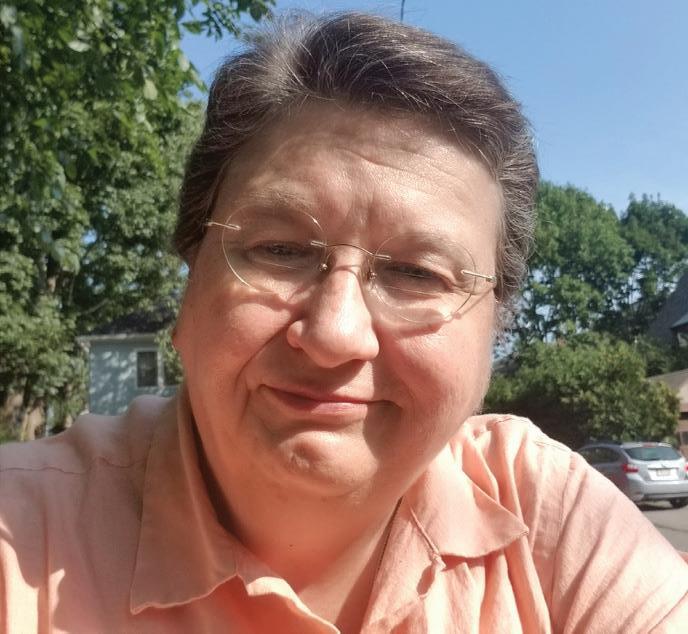
3 minute read
Disability: From One Perspective
Disability: From One Perspective
Kathleen Kopitsky, All Saints, Worcester
I am currently a Postulant for Holy Orders in our diocese and I have 40 years of experience working for human services in Massachusetts, with people with disabilities, and in the community. These people have chronic mental health issues, developmental disabilities, substance abuse issues, acquired disabilities, and so on. The last 20 years I have been working with families who have a loved one in need, are looking at a new normal, and want to navigate the state system to avoid institutional or congregate care. I worked with families to keep everyone living at home; because home is best not only for a full life, but for recovery. In my last position, I was a Division Director with a staff of 20 nurses and social workers who supported the above mentioned families. I attended the diocesan listening session on disability on January 30th because my professional background gives me one perspective— the view from serving this community.
The word “disability” means different things to different people. For some people, it is a lifelong part of their life that has become an inherent part of their identity. Rather than accept what some consider a deficit, these people have risen above to fully embrace all parts of themselves. Thus the “disability” becomes one of many things they deal with every day. Comedian Maysoon Zayid tells her audiences, “I got 99 problems… Palsy is just one.” And not all “disabilities” can be seen readily.
The word “disability” can also mean that someone and their family are working to manage a “new normal” resulting from an event or a medical condition that is debilitating and deteriorating. It could be a skiing accident, a stroke, dementia, or so many other things. There is a shift from the usual way of doing things.
Our society has particular ideas about what is “normal”. Whether you are managing a lifelong disability or have acquired one, there is a journey to acceptance that no one should do alone. It is good that we have each other. Here are some ideas to consider along the way:
• “Normal” is over-rated. In the tremendous diversity that is a part of God’s creation, who can honestly define “normal”? We can eliminate the stigmas associated with being different by getting over the idea of “normalcy”.
• Barriers are not just about ambulation. Whether or not you believe in the physical healing of the people Jesus encountered is not the point. The greater thing Jesus did was to remove the barriers for people’s full participation in the community. Ramps and lifts are one thing. We need to also think about hearing, seeing, smelling, seating, etc.
• Grieving the loss of expectations or hopes can take a lifetime. Often, we must figure out a way to live with it; as healing seems impossible. Still the possibility of hope looms large for those in community.
• We do not need to be everything to everyone, and it is good to know where the resources are. There are professionals in our communities who can lend support to our efforts. Where are they?
• Adaptations do not always mean a capital campaign. It is true that not every church building will be able to make it easy for wheelchair users to enter and participate. Every church can do something to remove barriers to full participation.
This is a call for creative adaptation of our communities. This is a call to listen to the lived-experiences of the faithful who live with disability and worship among us. ♦










